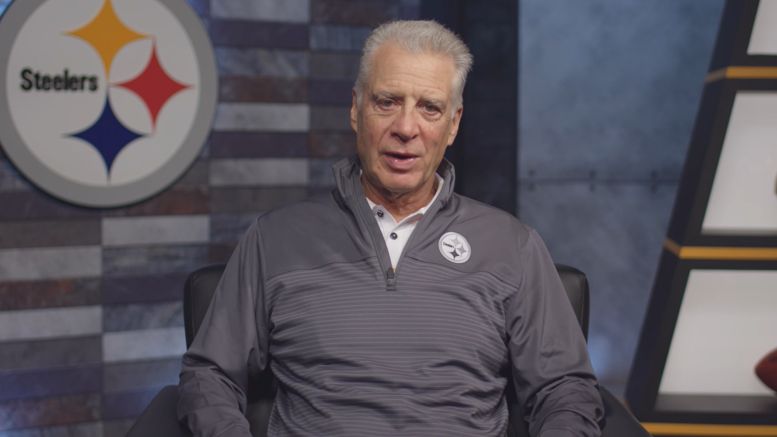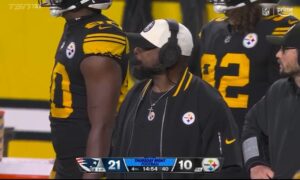I suspect that the majority of those who have followed the Pittsburgh Steelers close enough recognize that when it comes to the incorporation of technology into the game of football, they tend to skew toward the more conservative side.
While team president Art Rooney II is not opposed to replay reviews as part of officiating a game — and it’s certainly not going to go away — he has repeatedly expressed reservations about expanding it further. The league sort of took a step in the direction of expansion of replay this year. Though in actuality, it’s designed to come before a replay actually takes place.
“This rule is designed to provide more information to the on-field referee who still has the final authority to make a call unless it goes to an official replay,” he said of the new rule allowing the replay official to advise on-field officials pertaining to objective aspects of the game. “These things are happening without it going to an official challenge.”
The idea is that the officiating crew having access to somebody who has the ability to review plays in real time will help them make more accurate, and in some cases, more rapid decisions when it comes to there being uncertainty. In theory, a higher accuracy of officiating should also allow for fewer official reviews.
Which is what Rooney wants. But he’s also concerned with the amount of information pouring into the process. Already, a couple years back, they moved the final responsibility for official review decisions away from the field and into officiating headquarters.
Now you put another voice in his ear from the replay official, who’s supposed to feed him with video information that he can’t see himself, and you’re potentially tying him to decisions he essentially can’t make for himself, putting him in an awkward position for which he nevertheless remains accountable.
While I am in favor of efforts to improve the accuracy of officiating, it is clear that we must wait and see how this all plays out in reality rather than how it looks on paper. We have seen well-intentioned rules quickly sour before, the 2019 pass interference replay rule only being the most onerous of recent examples. Still, technology is more important to the game than ever before.
“We’ve made this a much harder game to officiate than ever before, with all of the different rules changes and the safety rules we have now, so they don’t have an easy job and we all recognize that,” Rooney admitted. “If we can provide help through replay or through technology, I think we need to be open to look at how best we do that.”
Ultimately, he said, he is looking for a balance between accuracy, speed and clarity. You want to get the calls right, but you don’t want to interrupt the game more than is necessary. Personal inclinations will divide opinions no matter how it’s played out. Poor execution of this new rule can sabotage any advancement in officiating technology for years to come.








